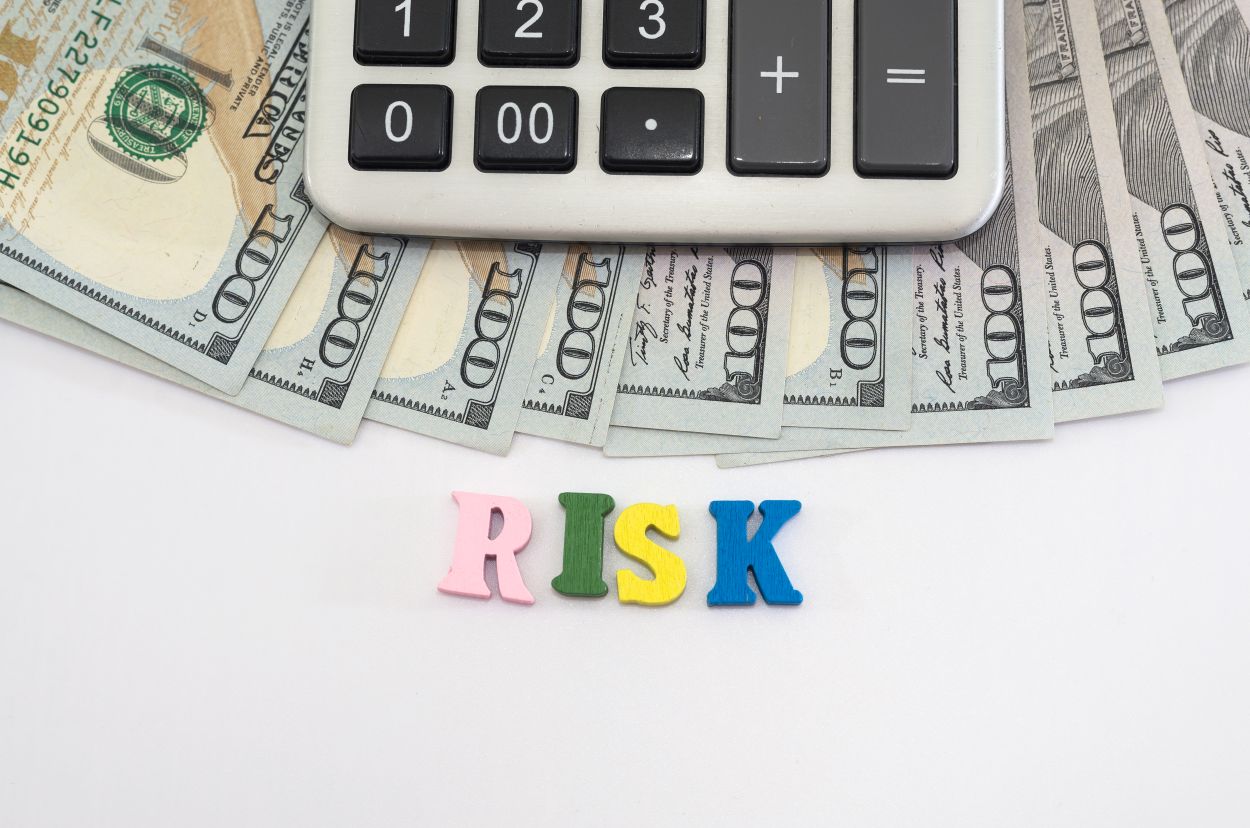The psychology of investing can be discussed in the context of many different financial markets, including the international Forex market. The characteristics of some markets and the way to invest in them define the different faces of this field of psychology.
Stress is an inseparable partner in the life of a trader
People who invest in the international Forex market, e.g. professional traders must deal with the stress associated with the investment decisions they make. The bigger the mutual fund, the more stress there is usually. This can be removed mainly due to the experience, knowledge and technical skills acquired by the investors.
The stress experienced by the investor in the foreign exchange market is usually greater than when investing in the stock market. It is affected by leverage, fundamental valuation and greater fluctuations in value.
Stress Factors in Forex
Financial leverage enables higher returns with a relatively small proportion of own funds. However, you should know that using it not only allows you to multiply the profits, but also the possible losses are greater. In the vast majority of cases, Forex uses financial leverage, which accelerates the movement of money in both directions, which in turn increases the stress level of investors. If you hope for a significant profit in Forex and you do not have enough funds for the investment you have made, you just have to get used to the stress of leverage.
Fundamental assessment can cause stress. Forex is difficult to operate relative to the value of certain currencies. The merchant cannot fully determine how much his purchase is objectively worth.
Currencies fluctuate very quickly in short time periods – incomparably more strongly than stock market valuations. The playing field changes in the blink of an eye and it is difficult to know the pace of Forex trading. A currency trader must have a strong psyche, be resistant to stress and be able to make important decisions in conditions of changing information.
Managing Emotions
The psychology of forex investing is based on identifying the emotions that an investor needs to deal with. They are very strong for novice players and tend to calm down as you gain confidence in your investment decisions. Everyone knows that emotions are not a good financial advisor, and Forex is no different.
The emotional intelligence of an experienced trader is high, which is expressed in self-awareness of the emotional states in which he is. Able to provide an objectively sufficient self-assessment and knows his limitations. He is able to control himself and refrain from reckless actions, which indicates a high level of self-control. The ability to not only recognize but also control our emotions has a huge impact on the environment and our fully conscious decisions. This state of mind usually requires that an entrepreneur has years of experience or is a natural human trait. Forex emotions cannot control our actions and determine the continuation of events, because it can be unfortunate.
There are many different emotions in Forex investment psychology:
positive emotions such as optimism, excitement, joy, euphoria, hope, relief, negative emotions – anxiety, disbelief, fear, despair, panic, surrender, doubt and depression. Sentiment forms a sinusoid of the subjective feelings of a Forex trader. Too optimistic approach to the market can lead to significant losses, but too negative will not allow you to take the risk that will allow you to reach the peak of Forex earnings.
Controlling and managing emotions is not easy. Above all, the entrepreneur must be aware of their existence, be able to name them and recognize appropriate emotional states at home. Then he can learn to control himself and make investment decisions coolly, taking into account objective starting points, not just intuition.
One of the greatest enemies of an investor is his own psyche
Therefore, investment psychology is one of the most important elements in the entire investment process. Emotions associated with investing encourage irrational decisions that increase the risk of financial loss. Controlling your emotions, restrained judgment, careful analysis and cool calculation increase the probability of success as an investor.
Greed and fear – the two enemies of the investor
Everything would be nice if, for example, investing in the stock market always went the way we wanted. If it just bought stocks and waited for them to go up. Then we sell them and enjoy the profit. We buy cheaper and sell more expensive – it seems that nothing is easier. However, the reality is not so colorful and investing is not so easy. And if you also consider the fact that investing is accompanied by emotions, greed and fear, it becomes even more complicated. So, when we talk about investing, the subject of investment psychology cannot be underestimated.
Good investment knowledge, excellent knowledge
of financial instruments or the ability to analyze listed companies are not enough when emotions take over. This is why investment psychology is so important. And the ability to control your emotions will certainly make it easier and faster to achieve your planned investment goals.
Greed
A common investment motive is the desire to make (big) money quickly. However, too high initial expectations for high returns and overconfidence is almost a recipe for failure. Appetite should increase when eating and experimenting. Investing, like any other activity, simply has to be learned. It’s like playing a musical instrument. You can’t wait to play a piece by Fryderyk Chopin the first time you sit down at the piano. It takes time, patience and constant learning.
Practice makes perfect!
Greed also occurs when the price of our stock has risen on schedule to a level we are satisfied with. Despite this, we do not decide to sell our shares because we want to earn even more.
Here are some typical emotional traps in trading and how to deal with them:
Hope
Every trader hopes that his trades are profitable and that he has read the market correctly. However, hope can be misplaced, especially if prices start to move in the wrong direction. Remember this and always stick to your strategy. If the quotes deviate from the target, it may mean that the motives for opening the trade turned out to be wrong and we need to look for an opportunity to exit the position at the best possible price. There is always a chance that the trade will eventually be cancelled, but usually the best course of action is to hang on to the beginning of the loss. Positions can be reopened when additional signals confirm the original idea.
Fear
Fear of ordering is quite common, especially among beginners. This is mainly due to the fear of financial loss. However, it is important to understand that this is an integral part of business, so fear should not prevent you from making decisions. If you are afraid to invest, you should consider looking at higher time frames. Remember that trading is a game of probability – when you analyze the market, you are looking for a potential investment opportunity that has a higher chance of making a profit than a loss. So why listen to negative emotions when you have the chance? By using the right risk and position management techniques, adding stop levels, we are able to limit losses while maintaining a very high level of control.
Greed
For some traders, this is probably one of the most destructive emotions. Greed can make you chase the market, take losses, open excessive positions, and worst of all, not follow your strategy. At this point, it is worth remembering again how important it is to adhere to the trading system once chosen. Some investors find it helpful to write the plan’s assumptions on a piece of paper and hang it above the computer screen – that way they will have something to constantly remind them of what to do when opening a position.
Highs and Lows. Psychologia inwestowania
The market, respecting historical levels, does not have to follow set patterns or patterns every time – therefore being a trader is a constant learning process. From one market cycle to another, there are transitional periods when it is necessary to identify and learn new investment opportunities. Psychologia inwestowania An important goal is to survive this period by managing your risks properly, reducing your position and having the right self-discipline not to give up too quickly. A great indicator of the important indicators for long-term traders is the ability to prepare for a period of weakness that follows a period of satisfactory performance.
Your trading plan can be the solution:
Managing emotions, especially due to dynamic price movements and strong account fluctuations, can make trading very difficult. This often leads to impulsive decisions that override logical and rational judgment. Therefore, making an investment plan is one of the most important things. Instead of being guided by emotions, the investor follows the instructions of his system and opens positions only when all the prerequisites are met. This solution leaves no room for emotion, which only creates unnecessary confusion.
Treat Business Like Business
What’s the best way to protect yourself from the destructive effects of emotions on your investment results? Treat what you do as a business. As befits a true businessman, an investor must create a detailed action plan and strategy behind each item and follow them in the future. Even the best traders suffer losses that cannot be avoided. If they appear, one must learn the right lessons from them, not repeat the mistakes in the future and look for another business opportunity.



